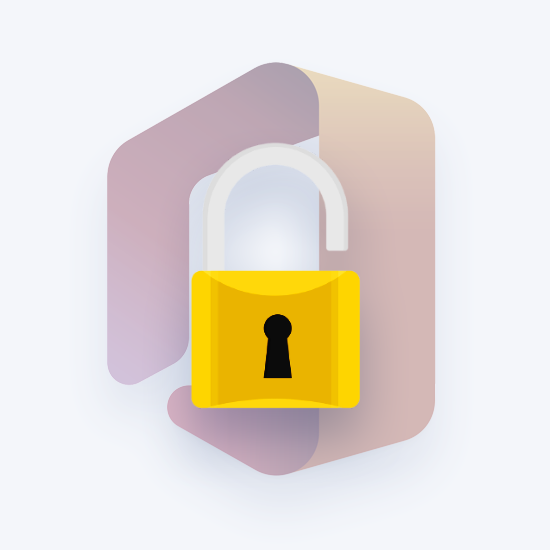In today’s modernized business practices, you should be looking for ways to continuously secure your data. Most major companies appear safe on the surface, however, people with malicious intentions will always find a way to exploit security holes. Microsoft Office 365 is a prime example.
If you want to keep your data and company safe while using Microsoft Office 365, you’ll need to think ahead. The online platform allows people to take advantage of the cloud to attack you with a range of threats. Accidents can also happen, and without proper backups, your files may be gone forever.
According to Microsoft themselves, to ensure their promised 99% uptime, their focus is undeniably on the physical security of the infrastructure. Data protection online is your responsibility.

Table of Content
- What are the dangers of using Microsoft Office 365?
- Stay safe when working with Microsoft Office 365
- 1. Securely backup your data
- 2. Use a trusted password manager
- 3. Install an anti-malware app
- 4. Only use approved software
- 5. Keep your network connections safe
- Final thoughts
What are the dangers of using Microsoft Office 365?
- Accidental deletion — Everyone makes a few slip-ups during their careers. Sadly, accidentally deleting a file that’s stored in the Microsoft 365 cloud may cause it to be gone forever.
- Online security threats — Your business could become the target of various cyber attacks any day. Competitors, hackers, or scammers often target businesses with scarce security for business data or financial gain.
- Legal and regulatory penalties — Chances are that your business is legally required to provide financial information for legal cases. If this data is lost, you could be facing charges and pay large fines.
- Retention policy gaps — There are other ways to lose your data than simply deleting it. Data often gets lost during employee turnover, poor data management, or data migrations.
Stay safe when working with Microsoft Office 365
Your online safety is very important. Stay safe when working with Microsoft Office 365 using the following methods:
1. Securely backup your data
A shocking statistic reveals that over 70% of organizations using Microsoft 365 are aware of or suspect the loss of cloud-based data. This is dangerous and may potentially cause financial and legal problems.
As Microsoft offers no way to securely back up your cloud data, we recommend using a third-party service to get the job done. When it comes to Microsoft Office 365, our pick is NAKIVO Backup & Replication.
NAKIVO ensures that your online, cloud-based data is always backed up in a separate location that remains accessible and recoverable at all times. You can back up mail inboxes, folders, or individual files.
2. Use a trusted password manager
A reliable password manager makes your life a million times easier. As a general rule of thumb, you should have long, complex, and unique passwords for every account you use online. Of course, keeping such information all in your head is near impossible.
We recommend using a password manager such as Dashlane to store and autofill passwords for you. Most password managers even allow you to generate strong, unique passwords that can’t be guessed or obtained through brute force attacks.
3. Install an anti-malware app
Strong defenses against malware completely eliminate the risk of viruses or ransomware attacks. We recommend Avast Premium Security for 1 device with a 1-year subscription to get incredibly reliable and powerful antivirus software.
Ensure that all of your employees have proper antivirus solutions on their work devices, too. If you require a large number of licenses at once, the most affordable solution is a year-long subscription to McAfee Total Protection for 10-Devices.
4. Only use approved software
This goes without saying: don’t install any applications from suspicious sources, especially not from the internet. Make sure to only download software from official sources, such as the company website you bought it from or a licensed physical copy of the product.
Keep your work devices free from such applications as well. If necessary, purchase a secondary device to work on and keep a separate personal one for yourself. This reduces the risk of a harmful application exploiting your security holes and finding its way to work-related data stored on the device.
5. Keep your network connections safe
While wireless connections are more convenient and have become a large part of our society, they’re certainly easier to exploit than wired networks. To keep yourself safe when going online, follow the next few tips:
- Avoid using Bluetooth to connect to another device.
- Don’t connect to public Wi-Fi, especially if it doesn’t have a password.
- Make sure your router has a complex password with WPA2 encryption enabled.
- If available, use a VPN service.
Final thoughts
If you need any further help, don’t be afraid to reach out to our customer service team, available 24/7 to assist you. Return to us for more informative articles all related to productivity and modern-day technology!
Would you like to receive promotions, deals, and discounts to get our products for the best price? Don’t forget to subscribe to our newsletter by entering your email address below! Receive the latest technology news in your inbox and be the first to read our tips to become more productive.